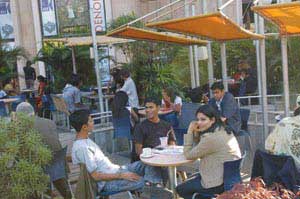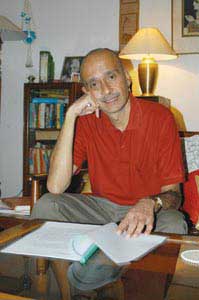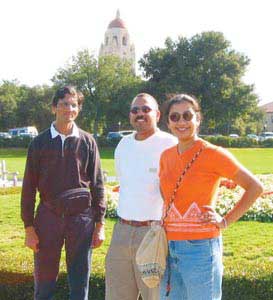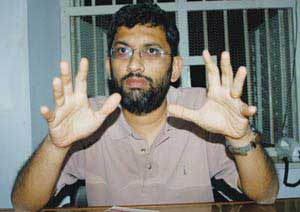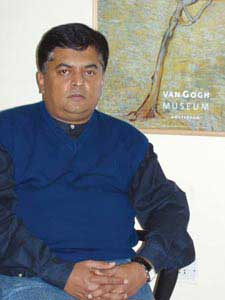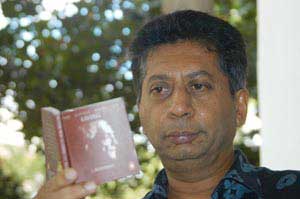India
Going Home
Opportunities and career prospects beckon the NRIs back home.
|
Mahatma Gandhi, Jawaharlal Nehru, Wipro Chairman Azim Premji, former Karnataka Chief Minister SM Krishna, all share something in common other than their Indian origins. They all lived abroad, gained valuable experience, returned and left an indelible impact on India.
They are all Returned Non Resident Indians or RNRIs.
If opportunities and the potential for better careers lured the best and brightest Indians to the West in the past, some of those same factors are now attracting many of them back home. “In the 1980s, it was the doctors and architects who came back to India and in the 1990s and post 2000, it is predominantly information technology professionals who are coming back,” says a researcher in the field at Bangalore’s Indian Institute of Science. Biotechnology, medicine and research industries are other popular draws as many of these industries in India have the latest cutting edge technologies, sometimes better than overseas, if only because they are setting up their latest operations in India. Manjunath P. Bijjahalli, president of the Returned Non Resident Indians Association (RNRI) in Bangalore, perhaps the only association of its kind in the country, estimates that between 20,000 to 25,000 NRIs have returned to Bangalore in the past three years. He projects the national RNRI population at 70,000.
“Most NRIs have come to Bangalore as it is the center of IT related work,” Bijjahalli says. Estimates are that between a quarter to a third of professionally active Returned NRIs, have settled in Bangalore. Chennai, Hyderabad and New Delhi, especially the surrounding areas of Noida and Gurgaon, are also popular among returned NRIs. The Indian government does not maintain statistics on returning NRIs and the term is not amenable to simple classification anyway. The broad category of returned NRIs includes not just those returning to India to work or on completion of their education or assignments abroad, but also retirees, many of who prefer to spend their sunset years in their home country. The RNRI association draws members from among returned NRIs from all over the world, including USA, Europe, Middle East, Far East, Africa and Australia. One measure of the returned NRIs rising numbers and clout is that the association’s 12th anniversary celebrations in July drew Azim Premji and Jagdish Tytler, union minister of state for non resident affairs. Most members are professionals, physicians, techies, architects, etc. “The majority of members are from the information technology segment. This is partly because of the dotcom burst and the IT slump in USA and Europe,” Bijjahalli says. Technology skills are transferable, unlike other jobs, which are often culture specific and non-transferable. In addition, the IT industry in India is booming, which enables the returned NRIs to be quickly absorbed in the job market. One head hunting firm in Bangalore, which asked not to be identified, disclosed that between April 2004 to December 2004, it recruited 75 NRIs, all of them in IT or related industries. Most NRIs were recruited for senior or middle management positions, which typically require five to 10 years experience.
For many Indian employees with multinational corporations, working in India involves simple relocation within the workplace. As major U.S. corporations set up Indian subsidiaries, they often turn to Indian professionals within their organizations to staff their India operations. Added to these hundreds, possibly even thousands, are technology professionals of many large Indian IT companies who send some of their staff abroad to work on limited duration projects. When these employees return they too join the teeming returned NRI population. Yet other NRIs are drawn by family bonds and cultural attachments, while some NRIs desire to bring their children up in an Indian environment. “Nine out of ten NRIs’ working abroad would love to come back to India if they find jobs which are equivalent to what they are in,” says Bijjahalli. The current outsourcing boom, with BPOs (Business Process Outsourcing) sprouting up in India at a mind boggling pace, combined with the IT slowdown in the United States and Europe, is the impetus behind the current wave of reverse migration. As IT jobs move to India, NRIs are sensing an opportunity to test the waters in India and explore living back home. Not all of them return with the intent to live permanently in India. Many come for short stints in the hopes of saving money or spending some quality time in India. Some are curious to see what’s evolving as they hear and read in the Western press about India’s rapid strides.
“It is a combination of evolving employment/off-shoring trends and the resultant growth in India,” says one RNRI. “Added to this is also the ‘guilt factor,’ which most of us have,” says Bijjahalli. “We feel we are not taking adequate care of our parents in their old age. Hence, to spend more time with them, we look at the option of coming back and living with them.” Spice that with lifestyle enhancements and the lure is irresistible. “I can attend a Veena concert in the evening, or meet up old chums over a coffee all in a few minutes notice, which is impossible in USA, with such busy schedules,” waxes Bijjahalli. Raj Ayyar, professor of humanities and multicultural studies, returned to India for personal reasons. Ayyar first went to the United States in 1975 as a research scholar and then taught at Brevard Community College and the University of Central Florida. “The many prejudices that the anti-immigrant lobby had against browns and all immigrants to the U.S. got a rationalized legitimacy with the 9/11 attacks and I, along with many others, was the target of several attacks. Beer cans were hurled at my car on occasion and there was an atmosphere of glowering suspicion about brown people.”
Ayyar organized outreach programs for students in his department who visited the central mosque of Florida, to speak with the Imam and members of an anxious Muslim community to try to allay their fears about hate attacks. “This was to create a healing atmosphere in America and it worked to some extent. The pity is that I had to come back so soon,” he says. Bijjahalli, who returned to India in 1996 because of family commitments after working for four years in the United States, estimates that between 40-45 of his friends have returned to India from America. He now runs several Indian portals and online yellow pages in India. “Earlier, money and good career prospects were the chief motivators to go to USA or Europe, but with the IT boom, the best jobs are moving to India. The outsourcing boom also has contributed to this,” Bijjahalli says. The lifestyle one can enjoy in India with the salaries that IT professionals draw is enticing. Explains Bijjahalli: “If a person earns $100,000 a year in USA, his savings there would have been say $20,000 per year. But with a similar salary here in India, one can save half of the amount easily. And if one lives here, there is the comfort of living with one’s parents, friends and an environment in which the kids can grow up to absorb the Indian values.” “We can afford to have everything that we had abroad with the added advantage of having servants and helping staff at home, which is not possible in USA,” he exults. His sentiment is shared by another IT professional Prasad Govindraman: “I am currently in Hyderabad and there lot of malls coming up and good schools so I do not feel I am missing anything.” Bijjahalli says: “We have the best of both the worlds in India, our culture and the best of material goods. You name the car and it is available here. With over 100 TV Channels, we have greater variety in entertainment than even USA. The mobile rates are the cheapest in the world and our work culture is comparable to any other country in the world. The few negatives are dealing with the bureaucracy, which can slow down things and of course infrastructure problems.”
Ayyar complains that “Bangalore has changed tremendously in the last five to ten years. It is becoming more of a garish nightmare, with potholes, live electric wires hanging in the air and the town planners ignoring all the mess. “People have been talking of the metro from the 1980s, but nothing has happened. The positives of Bangalore are that it is no longer a cozy little town, but has energy to it with vibrant centers of intellectual discussion, like Koshy’s, etc.” Govindraman says: “I used to think we can live happily if I earn some money and go back to India. But this place is getting expensive too. $100,000+ apartments are very common now and people’s lifestyle has also changed. I do not view Bangalore as alternative to US. Infrastructure is limited here so I do not think everybody can afford that kind of lifestyle.” Nevertheless, he says, Bangalore “is still the most liveable city in India, especially for the new kind of professionals. Largely, because there’s a good eco-system that has evolved to support entrepreneurs and mature organizations. However, infrastructurally, the city has collapsed and there’s little to look forward to here.” Sashi Sivramkrishna, says he returned to India in 1990, “on the day I finished my PhD in Economics from Cornell University.” “I liked living in USA, but had to really decide if I wanted to work there, and as someone interested in development economics, I really wanted to come back to India. USA is not the place to do the kind of economics that I wanted to do, and hence I returned. “ Nevertheless, he says, his time in the United States was exceedingly valuable. “It was helpful for me to go there as being in India is like being in a traffic jam, you cannot see from inside one how it looks; you need to go out to look at a traffic jam.” Sivramkrishna teaches Economics at Xavier Institute of Management and Entrepreneurship and T A Pai Management Institute in Bangalore. He also produces documentaries, the most recent on expatriates making Bangalore their home, and runs his family business. The floating NRI? A segment of the RNRI does not return to India for good, or simply sets one foot in the country. Some have professional and personal threads in two or even more countries. For some others, professional motives may take them to one country, while personal and emotional attachments draw them to another. Consider Richard Crasta, author of The Revised Kamasutra. He is a typical “floating NRI,” if one may call him that. “USA has become more oppressive after 9/11 and this has led to some problems for Indians there. I would feel more comfortable in India because more people share my views there.” Crasta typically spends three months in the United States, three months in India and the rest of the year all over the world. He is working on a novel based in South East Asia. “I enjoy the freedom of opportunity in USA, where there is a counter culture, which does not exist in India. India has accepted me as a writer and America has broadened my horizons. In that sense I owe a lot to my home country,” says Crasta. For Mudassir Khattab (Amir), an engineering graduate from the M S Ramaiah Institute of Technology, Bangalore, returning to India was natural. Having lived for a considerable part of his life in Mecca, Saudi Arabia, Khattab decided it was time to move back.
“As long as I get a good job and a decent salary, I would love to stay back in India,” says Khattab. “The environment here is free in India, and there is scope for creative expression of talents. I want to get into software industry as it offers great opportunities for growth. Also with a conservative family like mine, Europe or USA was not a choice. Familiarity with the country made India the first choice to come back,” he says. “The only jobs available in the Middle East are either in the civil engineering or mechanical engineering segment, both of which I dislike, and the only option for me was to come to India and try my luck here.” The major reasons professionals cited for not wanting to work in India in the past were the slow pace of work and the unprofessional attitude toward work. In recent years IT companies and MNCs’ have changed all that. In the past decade, India has been totally re-shaped in the areas of work pace and professionalism. However many NRIs still complain about their dealings with the government and bureaucracy. Says Vijay Kaushik, a software engineer from San Fransisco, Calif., who is relocating to Bangalore: “India has the opportunities, but how India progresses in technology and how this would translate into us becoming a solid power house is something I think about. Not because of the ability of the people, but because we simply do not value time. Unless we do that, we are not going anywhere.” “To quote Swami Vivekananda Jo insaan samay ki keemat pehchanta hai; samay usey utnaa hi keemti banata hai. I don’t see this in India unfortunately. If we value time only for our USA clients, then it is not good work culture” Another techie concurs: “The work ethic can be average to poor. There are extremes. Expectations are never clearly understood and there is very little value attached to commitments. Nothing gets done unless there are persistent follow ups. The karmic culture seems to slow people down. The ‘Give it your best and don’t worry about the results’ logic is all-pervasive. This leads to an often ‘too high’ a level of contentment and the ‘fire in the belly’ is often untapped.” Acceptance of the RNRIs Returning after many years abroad can be quite challenging for many, while it may require just a few days of “acclimatizing” for some others. Ayyar, 54, says, “The overwhelming positive has been that I have been accepted unconditionally. Ours is a very hierarchical society and also a very ageist one. The fact that I have been able to find a job after returning and am able to host radio shows, teach and make friends is a very great positive.” “In India, if one is unmarried at my age, an NRI and working, the reaction of people would have been very odd about 20 years ago. But the new cosmopolitan culture has accepted me as one of their own, not as a ‘dhobi ka kutta’,” he says, laughing. “If the children are young, then it becomes easy for them to adjust in India. But if they are teens, they would definitely not want to leave behind their friends and live in an alien environment,” says Bijjahalli. For many NRI families, the decision to return has been well and long planned and so not overwhelming. Children, especially those who have lived abroad for many years, find the adjustment jarring in the beginning, but by and large returned NRIs say even the children are happy in their new environment. “My wife is a travel freak, so am I, so we will definitely feel at home the day we come back to India” says Vijay Kaushik, who is currently planning his move back to India from Silicon Valley in California. Ayyar says, “While I have had to make small changes in my lifestyle, like coming home before 10 in the night, I have not had many problems with my family here. Though this does make me feel like a 12 year old at times, I think there are small sacrifices I need to make to live at home.” While returning to their homeland is variously driven by emotional, professional, circumstantial forces, and occasionally by necessity, most NRIs say they have adjusted well and feel good about their decision to return to India. Whether the pace of reverse migration continues to build up remains to be seen. If the IT steamroller hits a bump or other hi-tech industries saturate, the steam may well run out. But for now, the NRIs who have taken the plunge are enjoying the ride. |

